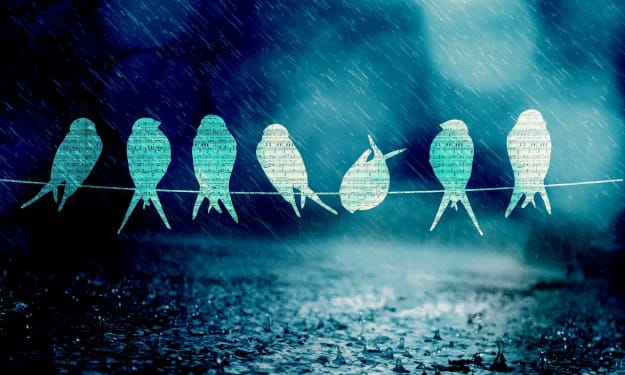According to Science, Here's How to Remember Everything You Read
Remember Everything You Read

Everyone has been there. You sit down to read a book, and before you know it, you've reached the end and can't remember anything. It's aggravating, but it doesn't have to be. There are numerous techniques you can employ to help you remember everything you read.
In this article, we'll look at some of those techniques and talk about how they can help you improve your reading comprehension. So, whether you're having trouble memorizing a textbook for class or simply want to get more out of your fiction novels, keep reading for helpful tips on how to remember everything you read.
Make use of the "Generation Effect."
When you stop reading, your brain begins to plan its response to what you have just read. And your brain does this by comparing the new information you just read to all of the old information you already know.
This is how we begin to comprehend what we're reading; we compare what we're reading now to what we've previously learned.
As a result, whenever you come across something new, you should stop and write about it. This will assist you in synthesizing the new information with all of your existing knowledge, whether done by hand or on a computer. This is referred to as the "generation effect."
According to the generation effect, we understand and remember things better when they are generated from our own understanding. The process of writing down what you read forces you to explain it to yourself in a way that you understand, which helps it stick better.
Make use of the "Scent" Method
Another way to remember something is to associate it with a specific scent. Experts believe that the brain regions responsible for smells, memories, and emotions are inextricably linked. This, for example, explains why we can associate pleasant memories with a favorite food or experience.
The real trick here is to figure out what smells bring back good memories for you and then use those smells in conjunction with what you're attempting to learn. This works best if you can associate multiple memories with a single scent, which is why using a scented candle that smells like chocolate cake may help you remember both the appearance of Paris and some of its history.
Make a mind map of the information you learn
A mind map is a diagram that depicts words, ideas, tasks, or other items that are related to and organized around a central keyword or idea. Mind maps are excellent for remembering because they transform what you're learning into something you can visualize. This activity helps to reinforce the information by connecting various thoughts in your mind.
To make a mind map, start with the central idea and add lines that branch off from it, as Hazel Wagner explained in her famous TEDx talk about mind mapping. Then write another word related to the central idea on each of those lines. By drawing arrows and connecting each new branch, you can keep the branches connected.
Teach Others What You're Learning
Teaching the material you just learned is one of the best ways to learn something and remember it well enough to pass a test or quiz. According to studies, students who teach what they've learned learn faster and better, and thus perform better on tests.
Here's the thing: teaching necessitates organizing your information in an understandable manner, which forces you to think critically about what you've read or heard. This forces you to connect different thought processes, which will aid in your memory of the material later on.
Use All Of Your Senses When Reading
Reading is an important part of absorbing information, but it isn't enough to fully comprehend a subject. Reading, in fact, only employs one of your senses: vision.
Reading with your other senses is essential for comprehension, and it is possible with just a little magnification. A simple way to do this is to use different colors to highlight, underline, or circle parts of the text that stand out to you.
When reading a business document, for example, you might use a bright color to highlight or circle the most important parts of the text. Alternatively, you could circle or underline passive or weak parts in orange, yellow, pink, and so on. This can aid in the creation of a much more vivid picture of the information you're attempting to comprehend.
Make connections between various ideas
After reading about something that seems interesting or useful, consider how this topic relates to other aspects of your life.
Making a mental note and hoping you'll remember it later isn't enough (which is what most people do). To learn something well, you must connect various thoughts and ideas because this makes the information easier to recall later.
Assume you come across an article about early education and the advantages of exposing young children to new experiences. Most people would read that article and think, "Wow, I should expose my child to new things," without connecting the ideas in the article to their own lives.
If you want to make sure you remember this article, find ways to connect the new information to your child's life. For example, by relating it to a recent conversation they had with your child. This is how you transform no longer-new information into knowledge that sticks like glue in your brain.
Close your eyes and try the "Close Your Eyes" Method
Visualization is one of the simplest methods for memorizing new information. When someone tells me they can't remember something, I tell them to close their eyes and imagine the information they're trying to remember as a movie playing out in front of them in their heads.
Close your eyes and use this time to remember what you're trying to absorb instead of turning off the lights in your room. If I'm reading a book about dog physiology, I might visualize a dog's skeleton and organs while trying to remember their functions in the body. Even if you have a bad memory, this is a great way to remember new information.
Find Applications for Your Knowledge
The more links you can make between the knowledge you want to learn and some aspect of your life, the more likely it is that you will remember what you read or heard. This is analogous to sharing what you've learned.
For example, if I'm learning about a new business idea, I'll try to think of different ways I can use this new information to make myself more money so that I have a strong incentive to remember what I read.
When you apply the knowledge you're trying to learn in a way that benefits you, you're more likely to remember it for longer and more clearly.
Last Thoughts
If you want to remember everything you read, try the following methods: Read actively and pay attention to how the information relates to your life; make connections between new and existing thoughts; visualize new information using the "close your eyes" method.
Find ways to apply the knowledge you absorb in your own life (this is one of the best ways to remember what you learn), and find multiple links between the new information and memories that are personal to you.
https://www.radafacts.com/2023/03/according-to-science-heres-how-to-remember-everything-you-read.html
About the Creator
Enjoyed the story? Support the Creator.
Subscribe for free to receive all their stories in your feed. You could also pledge your support or give them a one-off tip, letting them know you appreciate their work.





Comments
There are no comments for this story
Be the first to respond and start the conversation.